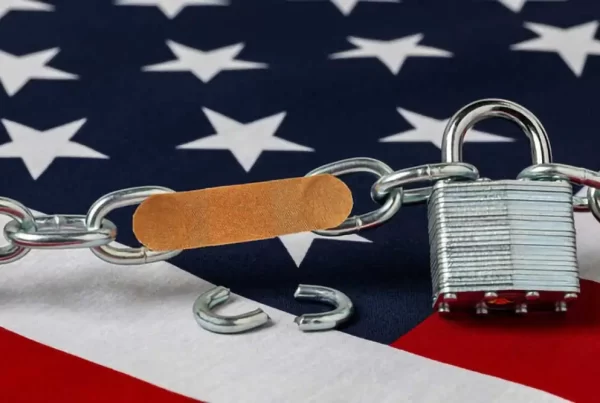written by Associate Attorney Rocky Rawcliffe
If you’ve watched television news lately you’ve definitely seen the talking heads debate the virtues and evils of the free market. In the interest of full disclosure I’m all for the free market, but what about goods and services where the state is the only consumer. Is the free market capable of fulfilling the needs of the state without a race to the bottom? I say NO! Continue reading to find out why.
One of the services of which the state is the only consumer is the detention of those who have been found to be in violation of federal immigration laws. Violations of these arcane laws are administrative, not criminal, and subject the violators to administrative detention. As federal immigration enforcement has increased over the last several years, so has the requirement for administrative detention space.
Filling this requirement for more administrative detention space are companies like Corrections Corporation of America (CCA) and the GEO Group. These are private companies which sell detention space to the government. If that doesn’t sound Orwellian you should re-read 1984. It does not take a rocket scientist to figure out that these companies have an interest in lowering the costs associated with detention (to increase profit margins) and maintaining occupancy levels, i.e. – a race to the bottom, because there is no check on the quality of the detention by the ones being detained.
Why is this bad for immigrants, documented and undocumented?
SAFETY OF THOSE DETAINED FOR IMMIGRATION VIOLATIONS
The most obvious way to lower the cost of detention is to hire fewer guards. Guards are not only charged with preventing escape, but with the safety of those under their control. Fewer guards per detainee results in more detainees at risk of harm from their fellow detainees. This is especially important in the context of immigration detention, as individuals who have committed very minor offenses, such as driving while unlicensed, are detained with hardened criminals awaiting deportation. A father of three, whose only conviction is for having driven while unlicensed, might be detained next to a convicted murderer. Good job private prisons!
UNWARRANTED INFLUENCE
There are also several ways in which these companies can maintain occupancy levels. The most obvious way to maintain occupancy levels is to ensure that there are no changes in the law which make the detention of large numbers of immigrants, both documented and undocumented, less likely. What is even more troubling than maintenance of the status quo is that these private prison companies have an incentive to lobby for laws that will result in the incarceration of more people. Both companies maintain that they do not directly attempt to influence the political process, but you would have to be a fool to think that they don’t try to do so indirectly. This is the perfect example of unwarranted influence. While it may not affect the vast majority of us right now because we aren’t immigrants, what happens when these companies in their quest for profit want to make more everyday actions illegal? Who will be there to stop them?




